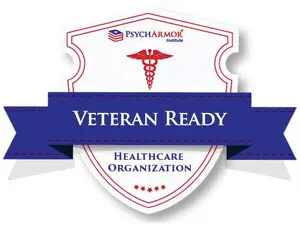A Few Laughs a Day Makes Recovery Easier—Here’s Why
 Here’s a surprising fact: humans aren’t the only creatures who laugh. Researchers have discovered that dozens of other species do it, too, especially during aspects of play. Allowing yourself the opportunity to get a few laughs in is only natural. So how will you do it?
Here’s a surprising fact: humans aren’t the only creatures who laugh. Researchers have discovered that dozens of other species do it, too, especially during aspects of play. Allowing yourself the opportunity to get a few laughs in is only natural. So how will you do it?
What Makes Us Laugh?
In 2021, researchers at UCLA released findings that approximately 65 other species have different vocalizations for laughter. Here’s an audio story featuring some of those sounds—which might also prompt a giggle or two! These creatures might not have the same sense of humor we do, but in their communication and play styles, laughter is an automatic response.
Humans sometimes have to work at finding humor and laughing a little harder than our animal friends. And while not every single person finds the same things hilarious, fortunately there are numerous types of comedy that tickle our funny bones. Here are just a few categories:
- Anecdotal
- Bodily humor
- Dark comedy
- Deadpan comedy
- Farce
- High comedy
- Hyperbolic
- Observational comedy
- Parody
- Romantic comedy
- Satirical
- Self-deprecating humor
- Slapstick comedy
- Situational comedy
- Surreal humor
- Tragicomedy
- Wordplay comedy
(You’ll find definitions for some of these at Master Class.)
So back to the question: what makes us have a few good laughs? Well, researchers aren’t quite sure and wow, according to Scientific American, have they tried. Theories range from evolutionary “based on the idea that in social species like ours, natural selection favors characteristics that foster the survival of the group, not just of individuals”; to benign violation “when a person simultaneously recognizes both that an ethical, social or physical norm has been violated and that this violation is not very offensive, reprehensible or upsetting”; to spot the mistake, an “emotional reward for discovering and thus undoing mistakes in thought. We don’t enjoy making the mistakes, we enjoy weeding them out”—among many, many other examinations.
Laughter can also happen in unpleasant situations, such as when we’re nervous or uncomfortable, or even in more sinister circumstances. But mostly, people seem rewarded by positive “benevolent humor”: the concept of laughing with, rather than at, others.
So How Does a Few Good Laughs Help You in Recovery?
Gelotology is the science that examines the effects of laughter on our physiology. There are many notable benefits to regularly chuckling, giggle, and loud bursts of amusement, including:
- Boosting your natural endorphins or “feel good” chemicals in the brain, as well as serotonin and dopamine.
- Engaging, then disengaging, your stress response, which lessens muscle tension (for up to 45 minutes!) and promotes greater relaxation.
- Providing more oxygen to your system, increasing circulation, and stimulating various organs, including your heart and lungs.
Researchers also indicate that laughter aids long-term well-being, such as improving your immune system response and lessening the effects of chronic pain. In fact, some medical professionals issue “laughter prescriptions” to people as a coping mechanism who deal with serious medical conditions such as cancer and Parkinson’s disease.
Laughter therapy for recovery is believed to be effective because:
- It enables you to form more social and meaningful connections with other people.
- You can improve your ability to deal with challenges and have a more positive outlook.
- It helps regulate your mood through the endorphin release.
So essentially, you have nothing to lose and everything to gain by finding more ways to laugh each day.
Add More Laughter in Your Life
If you feel each day could use a little more cheer and a few laughs, try these ideas:
- Get together with your sobriety support and recovery alumni groups.
- Go to the bookstore and review joke books so you can discover such gems as “What do you call a parade of rabbits hopping backwards? A receding hare-line!”
- Outline what made you laugh and why in your daily recovery practice notes.
- Revisit some of your favorite funny movies and see if they make you laugh today.
- Go old school and read comic strips, including the classics and maybe new ones on GoComics.
- Play with animals, as their natural enthusiasm sparks a more lighthearted spirit in you—and you might catch them laughing!
- Seek out stand-up performances both live and online for stress relief, such as Dry Bar Comedy and other comedians you enjoy.
- Change your entertainment preferences by choosing more comedic programs instead of serious dramas.
- Join in the antics at Laughter University for a healthy dose of laughter wellness.
Whether you do one or all of these suggestions, you should notice a consistent change in your disposition.
Holistic Focus in New Jersey
Successful recovery means you can embrace all types of methods that add to your well-being every day. Many holistic therapies help broaden your perspective in ways you never thought possible. Seabrook’s board-certified professionals believe that evidence-based medical treatment combined with these outlets establish a stronger foundation of sobriety. If this is what you’re looking for to start a new chapter in your life, please call us.




